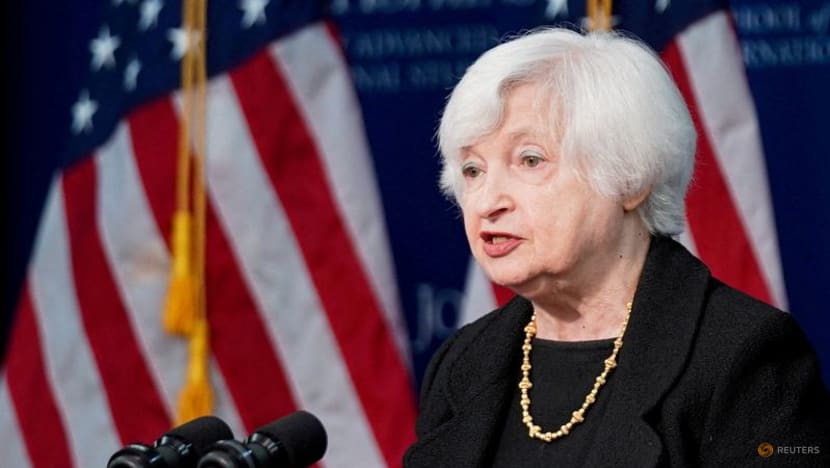WASHINGTON: US Treasury Secretary Janet Yellen's first trip to China will focus on recalibrating ties between the world's two largest economies, as military communications remain frozen and Beijing's new restrictions on exports of some metals spark fresh tensions.
US officials say they expect "candid" discussions during Yellen's Jul 6 to Jul 9 trip, after Beijing's abrupt announcement on Monday of controls on exports of some gallium and germanium products widely used in semiconductors, as well as a new counterespionage law, both seen as potentially harmful to US firms.
No major breakthroughs are expected, but Yellen will push to open new lines of communication and coordination on economic matters, and stress the consequences of supplying lethal aid to Russia, US officials say.
Chinese officials are concerned about the Biden administration's plans to limit US companies' China investments and what they see as moves to decouple the two economies. China's economy is recovering more slowly than expected from COVID-19 lockdowns and the job market is tough.
Yellen's long-anticipated trip follows weeks after Secretary of State Antony Blinken visited Beijing and agreed with Chinese President Xi Jinping that the two countries' rivalry should not veer into conflict, and amid a freeze in military communications between the two nations.
"There is no substitute for diplomacy," said one senior administration official.
"A phone call is just not the same."
Wu Xinbo, a professor at China's Fudan University, described Yellen as a "voice of reason" within the Biden administration, and said China hopes Yellen's visit can "improve the mood" for potential future talks with Commerce Secretary Gina Raimondo on tariffs and sanctions on Chinese tech companies.
But some critics said the meetings were sidestepping important issues.
Derek Scissors, a senior fellow at the American Enterprise Institute, said Yellen was embarking on "an empty trip," given China's refusal to engage on potentially dangerous military issues.
"They look like supplicants. On the security side, the Chinese won't talk to us, so it looks like the economic side is being used as a substitute," he said.
"It's not unimportant, but it's unpleasant and odd."
